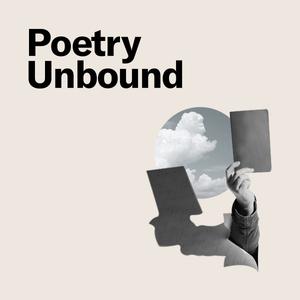
Poetry Unbound
On Being Studios
Short and unhurried, Poetry Unbound is an immersive exploration of a single poem, hosted by Pádraig Ó Tuama. Pádraig Ó Tuama greets you at the doorways of brilliant poems and walks you through — each one has wisdom to offer and questions to ask you. Already a listener? There’s also a book (Poetry Unbound: 50 Poems to Open Your World), a Substack newsletter with a vibrant conversation in the comments, and occasional gatherings.
- 12 minutes 42 secondsClosing: Poems as Teachers (ft. Kai Cheng Thom) | Ep 7
In this concluding episode of "Poems as Teachers," our special miniseries on conflict and the human condition, host Pádraig Ó Tuama says the poems discussed in this offering are a different kind of teacher: “not as teachers that give us rules to follow — more so teachers that share something of their own intuition.” And for a final reflection, he offers Kai Cheng Thom’s “trauma is not sacred,” which speaks directly, fiercely, and lovingly to the pain, scars, and violence that we humans carry and inflict upon one another.
Kai Cheng Thom is a writer, performance artist, and community healer. Kai Cheng is the author of the novel Fierce Femmes and Notorious Liars: A Dangerous Trans Girl's Confabulous Memoir; the essay collection I Hope We Choose Love: A Trans Girl's Notes at the End of the World (an American Library Association Stonewall Honor Book); the poetry collection a place called No Homeland (an American Library Association Stonewall Honor Book); and the children's books From the Stars in the Sky to the Fish in the Sea (illustrated by Kai Yun Ching and Wai-Yant Li) and For Laika, the Dog Who Learned the Names of the Stars (illustrated by Kai Yun Ching). She won the Writers' Trust of Canada's Dayne Ogilvie Prize for LGBTQ2S+ Emerging Writers in 2017.
Find the transcript for this show at onbeing.org.
This is the final episode of "Poems as Teachers," a special seven-part miniseries on conflict and the human condition.
We’re pleased to offer Kai’s poem, and invite you to read Pádraig’s weekly Poetry Unbound Substack, read the Poetry Unbound book, or listen back to all our episodes.
17 May 2024, 6:05 am - 14 minutes 4 secondsYehuda Amichai — Poems as Teachers | Ep 6
Being right may feel good, but what human price do we pay for this feeling of rightness? Yehuda Amichai’s poem “The Place Where We Are Right,” translated by Stephen Mitchell, asks us to answer this question, consider how doubt and love might expand and enrich our perspective, and reflect upon the buried and not-so-buried ruins of past conflicts, arguments, and wounds that still call for our attention.
Yehuda Amichai was an Israeli poet and novelist born in Würzburg, Germany, and he lived from 1924 to 2000. His poetry is collected in numerous works, including Open Closed Open, The Selected Poetry of Yehuda Amichai, and The Poetry of Yehuda Amichai.
Stephen Mitchell is an author, poet, and translator. His works of translation include The Selected Poetry of Rainer Maria Rilke, Gilgamesh, and Full Woman, Fleshly Apple, Hot Moon: Selected Poems of Pablo Neruda. Mitchell translated The Selected Poetry of Yehuda Amichai with Chana Bloch.
Find the transcript for this show at onbeing.org.
This is the sixth episode of "Poems as Teachers," a special seven-part miniseries on conflict and the human condition.
We’re pleased to offer Yehuda’s poem, and invite you to read Pádraig’s weekly Poetry Unbound Substack, read the Poetry Unbound book, or listen back to all our episodes.
17 May 2024, 6:00 am - 13 minutes 10 secondsJericho Brown — Poems as Teachers | Ep 5
In “Hebrews 13” by Jericho Brown, a narrator says: “my lover and my brother both knocked at my door.” The heat is turned on, scalding coffee is offered and hastily swallowed, and silence is the soundtrack. What an exquisitely awkward triangle it is, and what a human, beautiful, and loving shape that can be.
Jericho Brown is the Charles Howard Candler Professor of English and Creative Writing at Emory University, where he also directs the university’s creative writing program. His books of poetry are The New Testament, Please, and The Tradition, for which he won the Pulitzer Prize in 2020.
Find the transcript for this show at onbeing.org.
This is the fifth episode of "Poems as Teachers," a special seven-part miniseries on conflict and the human condition.
We’re pleased to offer Jericho Brown’s poem, and invite you to read Pádraig’s weekly Poetry Unbound Substack, read the Poetry Unbound book, or listen back to all our episodes.
16 May 2024, 6:00 am - 16 minutes 29 secondsMosab Abu Toha — Poems as Teachers | Ep 4
In Mosab Abu Toha’s “Ibrahim Abu Lughod and brother in Yaffa,” two barefoot siblings on a beach sketch out a map of their former home in the sand and argue about what went where. Their longing for return to a place of hospitality, family, memory, friends, and even strangers is alive and tender to the touch.
Mosab Abu Toha is a Palestinian poet, scholar, and librarian who was born in Gaza and has spent his life there. He is the founder of the Edward Said Library, Gaza’s first English-language library. Things You May Find Hidden in My Ear is his debut book of poems: it won an American Book Award and a 2022 Palestine Book Award, and was named a finalist for the National Book Critics Circle Award in Poetry as well as the 2022 Walcott Poetry Prize. His writings from Gaza have appeared in The Nation and Literary Hub, and his poems have been published in Poetry, The Nation, the Academy of American Poets’ Poem-a-Day, Poetry Daily, and the New York Review of Books, among others.
Find the transcript for this show at onbeing.org.
This is the fourth episode of "Poems as Teachers," a special seven-part miniseries on conflict and the human condition.
We’re pleased to offer Mosab Abu Toha’s poem, and invite you to read Pádraig’s weekly Poetry Unbound Substack, read the Poetry Unbound book, or listen back to all our episodes.
15 May 2024, 6:00 am - 17 minutes 23 secondsConstantine P. Cavafy — Poems as Teachers | Ep 3
We ask questions to find out the facts, but what if you can’t trust the answers, the questions, or the person who's asking the questions? In Constantine P. Cavafy’s “Waiting for the Barbarians,” translated by Evan Jones, leaders exercise a sinister kind of violence — they’ve taken over people’s imaginations with showy displays of wealth and privilege, time-wasting ceremony, and fear coursing beneath it all.
Constantine P. Cavafy was a Greek-language poet born in Alexandria, Egypt, and he lived from 1863 to 1933. His poetry has been published in numerous collections, including The Complete Poems of Cavafy, The Collected Poems, and The Barbarians Arrive Today.
Evan Jones is a Greek-Canadian poet based in Manchester, England. His first collection, Nothing Fell Today But Rain, was a finalist for the Governor General's Literary Award for Poetry, and his British debut, Paralogues, was published in 2012. He is the translator of Constantine Cavafy’s The Barbarians Arrive Today: Poems & Prose, and his most recent poetry collection is Later Emperors.
Find the transcript for this show at onbeing.org.
This is the third episode of "Poems as Teachers," a special seven-part miniseries on conflict and the human condition.
We’re pleased to offer Constantine P. Cavafy’s poem, and invite you to read Pádraig’s weekly Poetry Unbound Substack, read the Poetry Unbound book, or listen back to all our episodes.
14 May 2024, 6:00 am - 17 minutes 43 secondsJoy Harjo — Poems as Teachers | Ep 2
As appealing as it may sound, is it really possible to live in a world completely free of conflict? No. And since differences and disagreements are inevitable and natural, Joy Harjo gives ground rules in “Conflict Resolution for Holy Beings.” Her call to us echoes across time and space — a call to listen, to humility, to justice, and to recognizing the land, the living, the dead, the not-yet-living.
Joy Harjo is a member of the Muscogee Creek Nation and the 23rd Poet Laureate of the United States. She is the author of 10 books of poetry, including An American Sunrise, Conflict Resolution for Holy Beings, and She Had Some Horses, and the memoirs Crazy Brave and Poet Warrior. Her most recent poetry collection is Weaving Sundown in a Scarlet Light: Fifty Poems for Fifty Years. She’s also produced several award-winning albums of music, including her most recent, I Pray for My Enemies.
Find the transcript for this show at onbeing.org.
We’re pleased to offer two sections of Joy Harjo’s longer poem, and invite you to read Pádraig’s weekly Poetry Unbound Substack, read the Poetry Unbound book, or listen back to all our episodes.
13 May 2024, 6:00 am - 10 minutes 25 secondsIntroducing: Poems as Teachers (ft. Wisława Szymborska) | Ep 1
Host Pádraig Ó Tuama gives an overview of this Poetry Unbound mini season that's devoted to poems with wisdom to offer about conflict and humanity. He also brings us Wisława Szymborska’s “A Word on Statistics,” translated by Joanna Trzeciak, which covers statistics of the most human kind — like the number of people in a group of 100 who think they know better, who can admire without envy, or who could do terrible things. Listen, and ask yourself: Which categories do I belong to? Which do I believe?
Wisława Szymborska was a Polish poet and recipient of the 1996 Nobel Prize in Literature, and she lived from 1923 to 2012. Her poetry is collected in numerous volumes including View with a Grain of Sand, Poems New and Collected, Miracle Fair, and Map.
Joanna Trzeciak is professor of Russian and Polish Translation and Translation Studies at Kent State University. She has translated two poetry collections: Miracle Fair: Selected Poems of Wisława Szymborska, which was the winner of the Heldt Prize for translation, and Sobbing Superpower: Selected Poems of Tadeusz Różewicz, which was shortlisted for the Griffin Poetry Prize and winner of the Found in Translation Award and the AATSEEL Award for Best Scholarly Translation.
Find the transcript for this show at onbeing.org.
We’re pleased to offer Wisława Szymborska’s poem, and invite you to read Pádraig’s weekly Poetry Unbound Substack, read the Poetry Unbound book, or listen back to all our episodes.
12 May 2024, 6:00 am - 14 minutes 9 secondsThomas Lux — Refrigerator, 1957
If your home were a museum — and they all are, in a way — what would the contents of your refrigerator say about you and those you live with? In his poem “Refrigerator, 1957,” Thomas Lux opens the door to his childhood appliance and oh, does a three-quarters full jar of maraschino cherries speak volumes.
Thomas Lux was an American poet and professor. He was the author of several collections of poetry, including To the Left of Time (Ecco, 2016), Child Made of Sand (Houghton Mifflin, 2012), God Particles (Houghton Mifflin, 2008), and New and Selected Poems of Thomas Lux: 1975-1995 (Ecco Press, 1999). Lux taught for many years at the Georgia Institute of Technology, where he held the Bourne Chair in Poetry and directed the McEver Visiting Writers Program.
Find the transcript for this show at onbeing.org.
We’re pleased to offer Thomas Lux’s poem, and invite you to read Pádraig’s weekly Poetry Unbound Substack, read the Poetry Unbound book, or listen back to all our episodes.
23 February 2024, 7:00 am - 15 minutes 59 secondsRita Wong — flush
The word “flush” is a verb, as in an activity that we do umpteen times a day. It’s also an adjective that conveys abundance. Fittingly, Rita Wong’s poem “flush” offers a praise song to water’s expansive and unceasing presence in our lives — from our toilets to our teacups, from inside our bodies to outside our buildings, and from our soil to our skies.
Rita Wong is the author of several poetry collections, including monkeypuzzle (Press Gang, 1998), forage (Nightwood Editions, 2007), and undercurrent (Nightwood Editions, 2015). Wong is an associate professor at the Emily Carr University of Art + Design.
Find the transcript for this show at onbeing.org.
We’re pleased to offer Rita Wong’s poem, and invite you to read Pádraig’s weekly Poetry Unbound Substack, read the Poetry Unbound book, or listen back to all our episodes.
19 February 2024, 7:00 am - 15 minutes 55 secondsMaria Dahvana Headley — Beowulf
Bro — this is definitely not the “Beowulf” that you read back in school. Maria Dahvana Headley’s gutsy, swaggering translation brings the Old English epic poem roaring into this century, showing you why this tale of fraught family ties, power plays and posturing, and mighty, imperfect people is as relevant as ever.
Maria Dahvana Headley is the New York Times-bestselling author of eight books, most recently Beowulf: A New Translation (MCD X FSG Originals, 2020). Her novel The Mere Wife (MCD X FSG, 2018), an adaptation of the Beowulf poem set in suburban America, was named by The Washington Post as one of its Notable Works of Fiction in 2018. Her essays on gender, chronic illness, politics, propaganda, and mythology have been published and covered in The New York Times, The Daily Beast, Nieman Storyboard, and elsewhere. She grew up in the high desert of Idaho on a survivalist sled dog ranch, where she spent summers plucking the winter coat from her father’s wolf.
Find the transcript for this show at onbeing.org.
We’re pleased to offer Maria Dahvana Headley’s poem, and invite you to read Pádraig’s weekly Poetry Unbound Substack, read the Poetry Unbound book, or listen back to all our episodes.
16 February 2024, 7:00 am - 14 minutes 2 secondsMichael Klein — Swale
A horse race from the 1980s may not seem like the obvious inspiration for a poem that celebrates so many of the things that make our lives worth living — good company (human and animal), good books, good food, and honest work — and that is just part of the surprise, delight, and surging joy of Michael Klein’s “Swale.”
Michael Klein is a two-time winner of the Lambda Literary Award for poetry and is the author of five books of poetry and two memoirs. His work has appeared in many places, including Poetry, Tin House, The Paris Review, and Bennington Review. His newest book is The Early Minutes of Without: New & Selected Poems (Word Works, 2023).
Find the transcript for this show at onbeing.org.
We’re pleased to offer Michael Klein’s poem, and invite you to read Pádraig’s weekly Poetry Unbound Substack, read the Poetry Unbound book, or listen back to all our episodes.
12 February 2024, 7:00 am - More Episodes? Get the App
Your feedback is valuable to us. Should you encounter any bugs, glitches, lack of functionality or other problems, please email us on [email protected] or join Moon.FM Telegram Group where you can talk directly to the dev team who are happy to answer any queries.
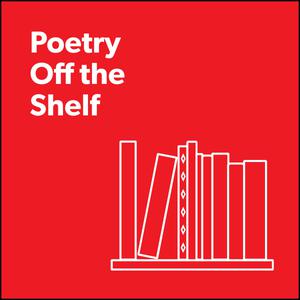 Poetry Off the Shelf
Poetry Off the Shelf
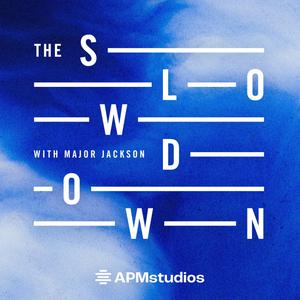 The Slowdown: Poetry & Reflection Daily
The Slowdown: Poetry & Reflection Daily
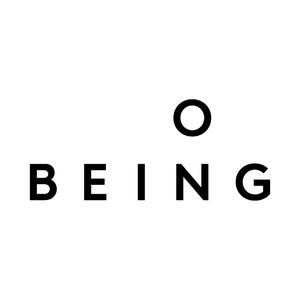 On Being with Krista Tippett
On Being with Krista Tippett
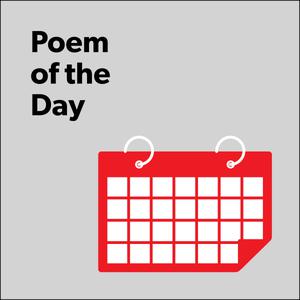 Audio Poem of the Day
Audio Poem of the Day
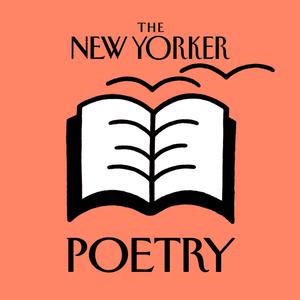 The New Yorker: Poetry
The New Yorker: Poetry